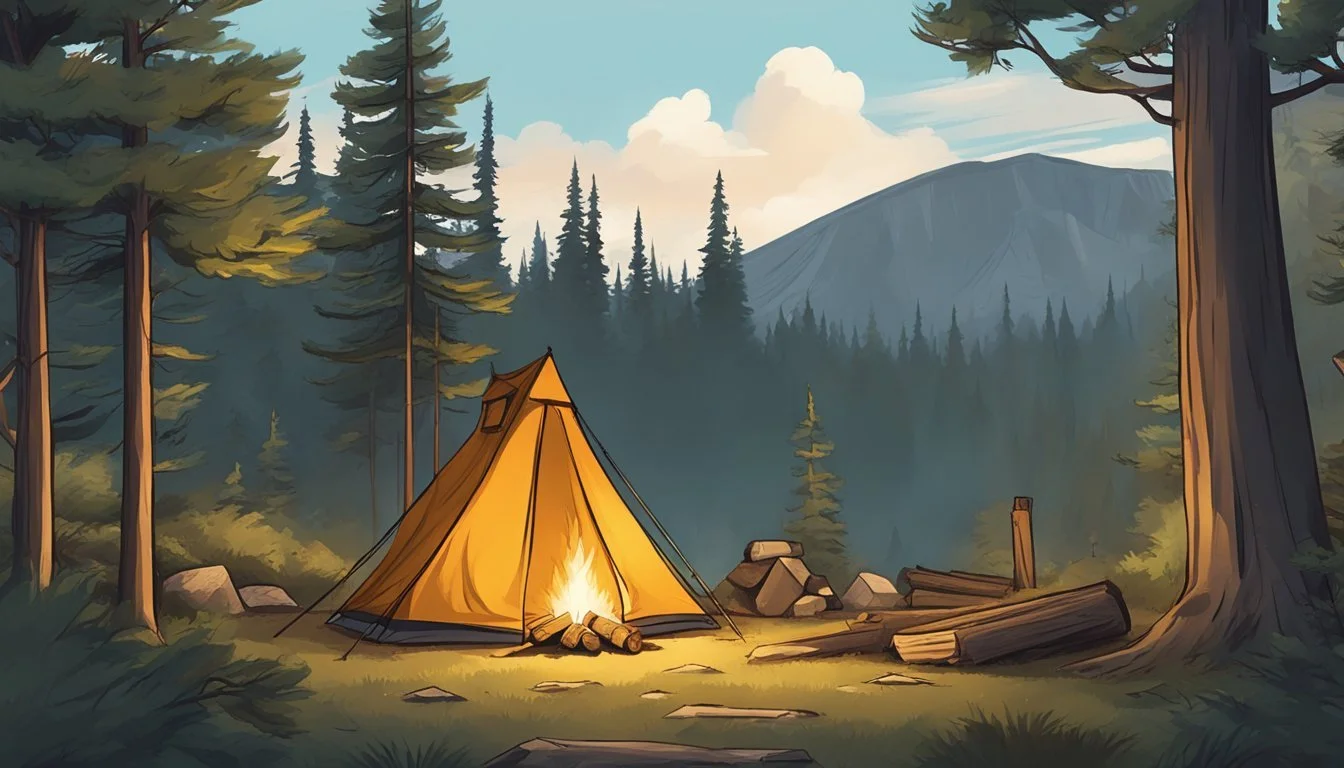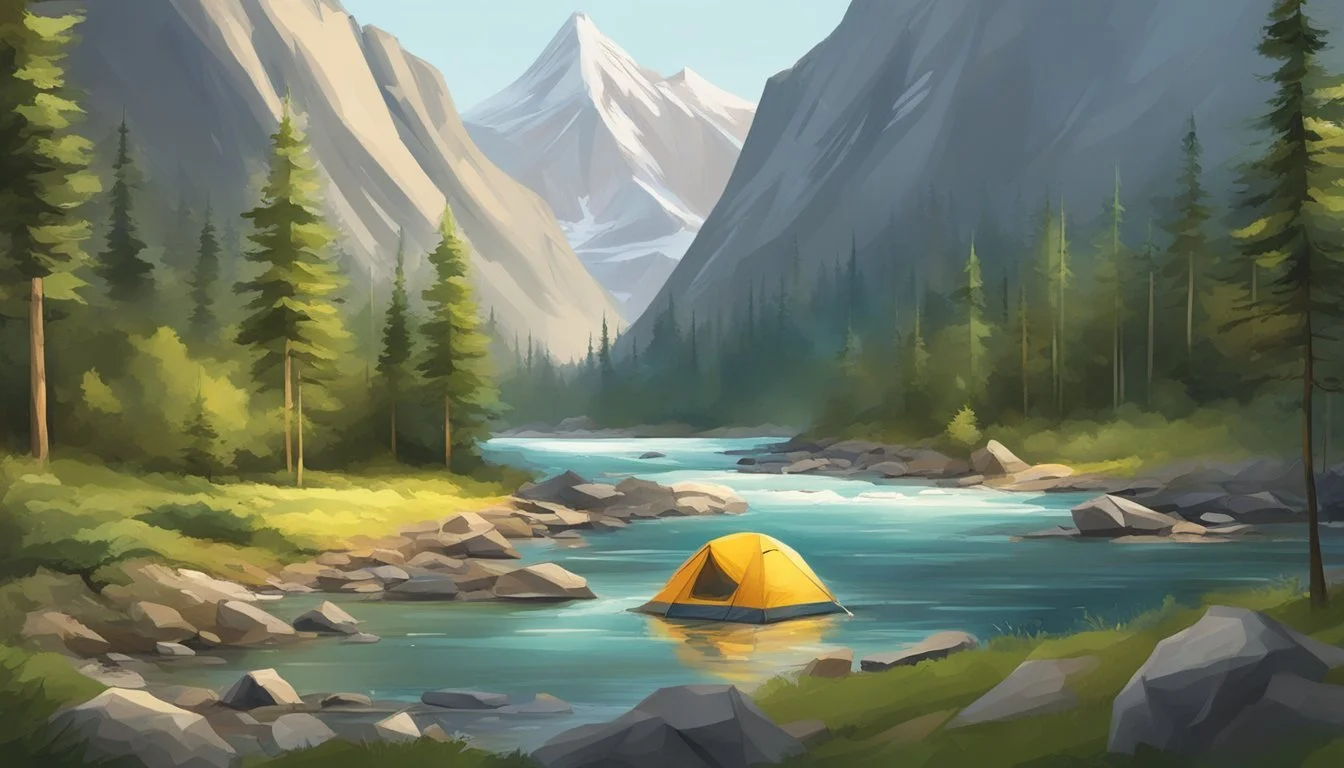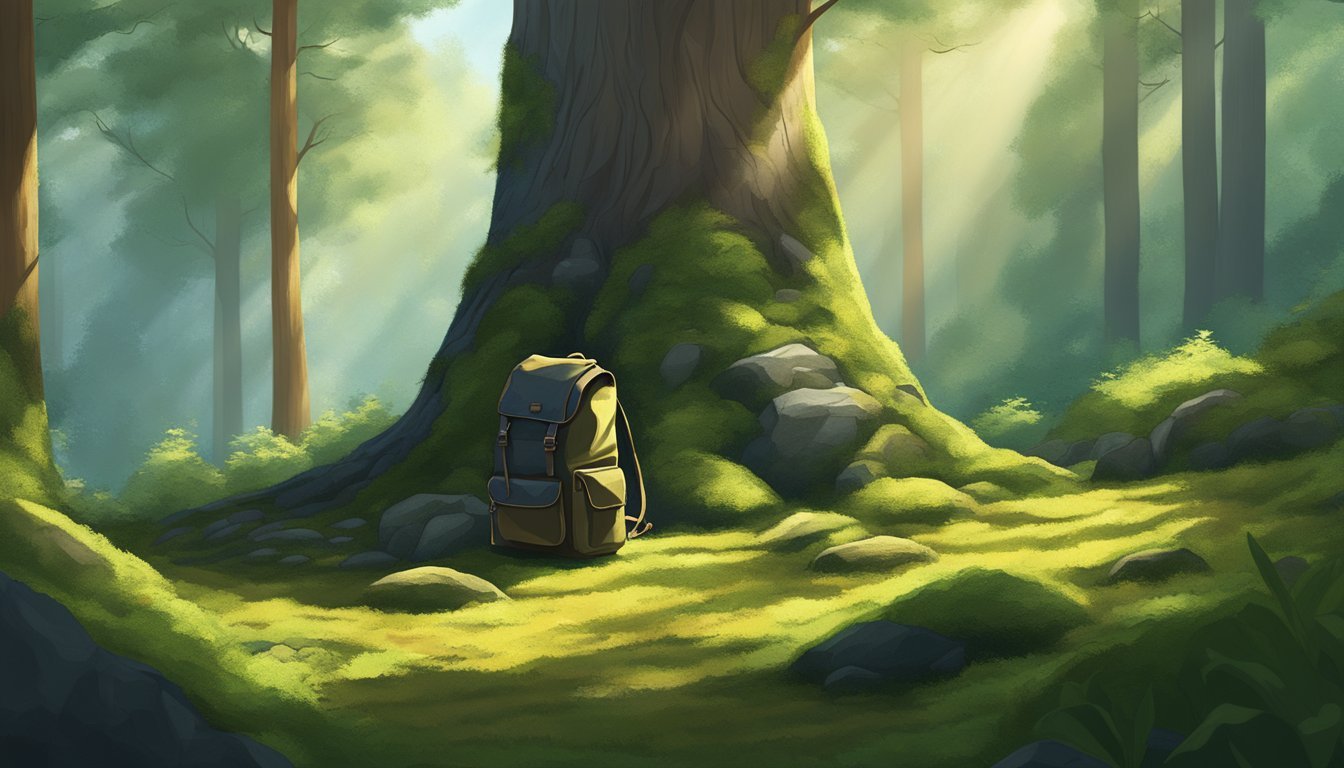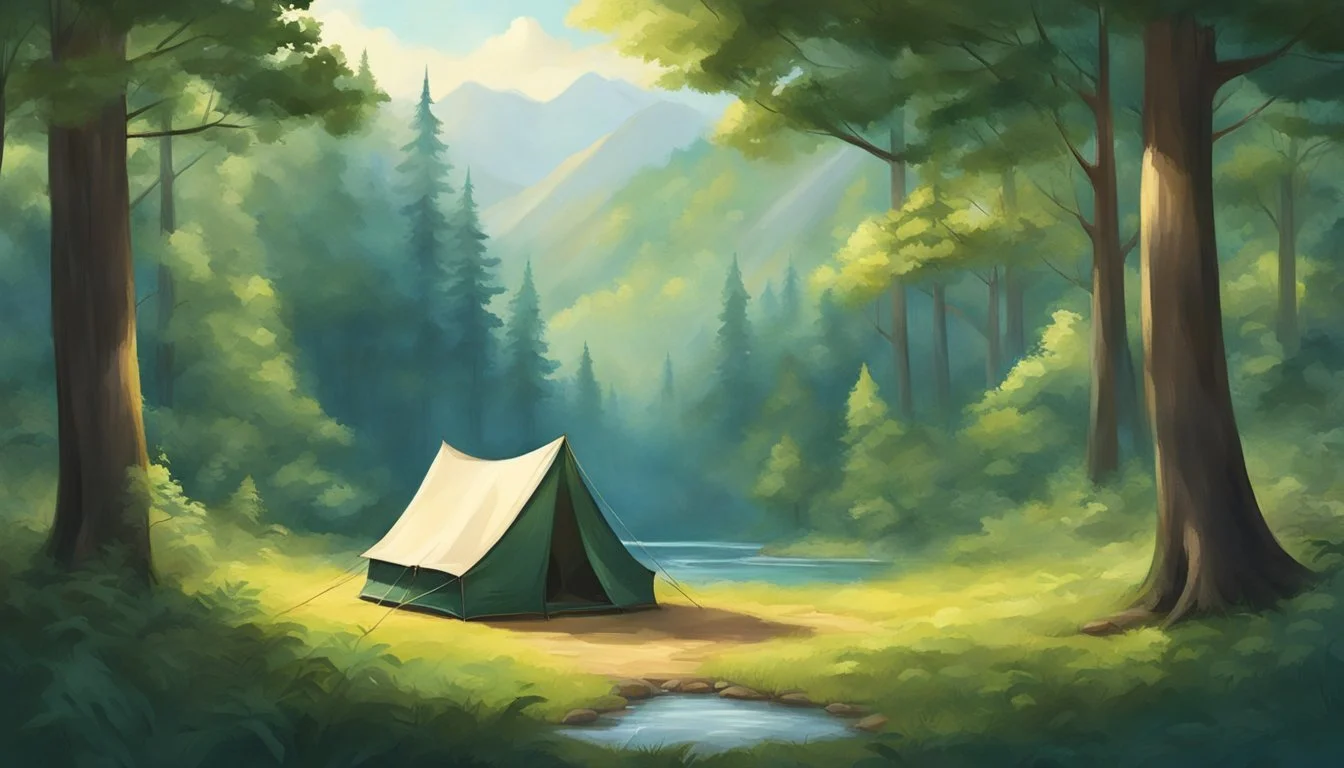Surviving the Wild: The True Tale Behind Into the Wild
McCandless' Alaskan Journey Examined
Christopher McCandless's journey into the Alaskan wilderness captivated readers and moviegoers alike. His story, immortalized in Jon Krakauer's book and Sean Penn's film "Into the Wild," sparked debates about adventure, self-discovery, and the perils of isolation. McCandless abandoned modern comforts to seek meaning in nature, ultimately meeting a tragic end in an abandoned bus just off the George Parks Highway.
The tale of this young adventurer resonates with many who yearn for a simpler existence away from society's demands. McCandless, also known as Alexander Supertramp, rejected materialism and embarked on a cross-country odyssey that led him to Alaska. His journey raises questions about the balance between human connection and solitude, and the risks of pursuing idealistic dreams in harsh environments.
While some view McCandless as a romantic hero, others see his story as a cautionary tale. His experiences highlight the importance of proper preparation and respect for nature's power. The "Magic Bus" where McCandless spent his final days became a symbol of both freedom and folly, drawing pilgrims and prompting discussions about wilderness safety and the allure of the unknown.
Contextualizing 'Into the Wild'
"Into the Wild" tells the story of Christopher McCandless, a young man who abandoned society for a solitary life in the Alaskan wilderness. The book, written by Jon Krakauer, sparked widespread interest and debate about wilderness survival, societal expectations, and the search for meaning.
Christopher McCandless: The Man Behind the Myth
Christopher McCandless was a 24-year-old college graduate who gave away his savings and possessions to embark on a journey of self-discovery. He adopted the name "Alexander Supertramp" and traveled across North America before venturing into the Alaskan wilderness in April 1992.
McCandless's idealism and rejection of materialism resonated with many readers. He sought to live deliberately, inspired by writers like Thoreau and London. His story raised questions about the balance between individualism and social responsibility.
Tragically, McCandless's adventure ended in his death. His body was found in an abandoned bus in Alaska, having succumbed to starvation and possibly poisoning from wild potato seeds.
Jon Krakauer: Author and Mountaineer
Jon Krakauer, an accomplished mountaineer and journalist, wrote "Into the Wild" after initially covering McCandless's story for Outside magazine. Krakauer's background in outdoor adventure and his personal experiences with risk-taking allowed him to approach the story with unique insight.
Krakauer conducted extensive research, interviewing McCandless's family, friends, and people he encountered during his travels. He also retraced parts of McCandless's journey, providing vivid descriptions of the landscapes and challenges faced.
The author's empathetic portrayal of McCandless, combined with his journalistic objectivity, created a nuanced narrative that explored the complexities of the young man's choices and motivations.
Cultural Impact of the Book and Film
"Into the Wild" became a bestseller and sparked intense discussions about wilderness ethics, personal freedom, and the allure of nature. The book's popularity led to a film adaptation directed by Sean Penn in 2007, further expanding its cultural reach.
The story inspired many to seek their own adventures, sometimes with dangerous consequences. It prompted debates about the romanticization of wilderness survival and the responsibilities of outdoor enthusiasts.
Public lands managers faced challenges as some readers attempted to retrace McCandless's steps. The abandoned bus where he died became a pilgrimage site, leading to numerous rescue operations before its removal in 2020.
Themes and Analysis
Jon Krakauer's "Into the Wild" explores profound themes through Christopher McCandless's journey. The narrative delves into the human desire for self-discovery, the tension between civilization and nature, and the consequences of idealistic pursuits.
The Lure of Solitude and Adventure
McCandless's quest for solitude reflects a deep-seated human yearning for independence and self-reliance. His rejection of societal norms and material possessions highlights a desire to strip away the complexities of modern life. This theme resonates with readers who feel constrained by social expectations.
The allure of adventure drives McCandless to push his limits. His travels across North America and ultimate journey into the Alaskan wilderness embody a primal urge to explore and test oneself against nature's challenges.
Krakauer's portrayal of McCandless's solitary experiences raises questions about the balance between isolation and human connection. It prompts readers to consider the value of solitude in personal growth and self-understanding.
Nature vs. Society: A Perpetual Struggle
The book presents a stark contrast between the natural world and civilized society. McCandless's embrace of the wilderness symbolizes a rejection of societal constraints and materialism.
Nature is depicted as both beautiful and unforgiving. It offers freedom and spiritual fulfillment but also poses deadly risks. This duality underscores the complex relationship between humans and their environment.
Krakauer explores how society's comforts can feel stifling to some individuals. McCandless's journey highlights the tension between the security of civilization and the raw authenticity of nature.
The narrative challenges readers to examine their own relationship with nature and society. It raises questions about the costs and benefits of conformity versus living on society's fringes.
Romantic Idealism and Its Consequences
McCandless's story embodies the power and peril of romantic idealism. His unwavering commitment to his principles and pursuit of a pure, transcendent experience in nature reflects a deeply idealistic worldview.
Krakauer portrays McCandless's idealism as both admirable and dangerous. While it drives him to extraordinary experiences, it also blinds him to practical realities and risks.
The tragic outcome of McCandless's journey serves as a cautionary tale about the potential consequences of unchecked idealism. It illustrates how romantic notions of nature and self-reliance can clash with the harsh realities of survival.
The book prompts readers to reflect on the balance between idealism and pragmatism in their own lives. It raises questions about the value of pursuing one's dreams versus considering practical limitations and responsibilities.
Journey to the Wild
Chris McCandless's journey into the Alaskan wilderness began on the Stampede Trail. He eventually settled in an abandoned bus, which became his home and final resting place during his solitary adventure.
The Stampede Trail: Gateway to the Wild
The Stampede Trail served as McCandless's entry point into the Alaskan backcountry. This rugged path, originally created for mining operations, stretches about 50 miles into Denali National Park.
McCandless hiked along this trail in April 1992, carrying minimal supplies. The trail presented numerous challenges, including river crossings and dense vegetation.
As summer approached, the melting snow made rivers more treacherous. This factor later played a crucial role in McCandless's inability to leave the area.
Life Inside the Magic Bus
McCandless discovered an abandoned Fairbanks City Transit System Bus 142 along the Stampede Trail. This bus, known as the "Magic Bus," became his shelter for 114 days.
Inside the bus, he created a simple living space. McCandless kept a journal, documenting his daily activities and thoughts. He foraged for edible plants and attempted to hunt small game for sustenance.
Despite his efforts to live off the land, McCandless struggled with food scarcity. His physical condition deteriorated over time. The bus, once a symbol of freedom and adventure, ultimately became the site of his tragic demise.
Survival Techniques
Surviving in the wilderness requires specific skills and knowledge. Obtaining food and navigating harsh terrain are critical challenges faced by those venturing into remote areas.
Foraging and Hunting for Sustenance
Foraging involves identifying and gathering edible plants, berries, and mushrooms. Knowledge of local flora is essential to avoid poisonous varieties. Hunting requires skill with traps, snares, or weapons.
Small game like rabbits and fish are often easier targets than larger animals. Proper food storage and preservation techniques help extend limited resources.
Purifying water through boiling or filtration is crucial to prevent waterborne illnesses. In snowy conditions, melting clean snow provides a reliable water source.
Navigating the Challenges of the Alaskan Wilderness
Alaska's vast wilderness presents unique obstacles. Dense forests, steep mountains, and icy rivers make travel difficult. Map reading and compass skills are vital for orientation.
Understanding weather patterns helps predict and prepare for sudden changes. Proper clothing layers protect against extreme cold and wet conditions.
Building shelters from natural materials offers protection from elements. Fire-starting abilities provide warmth and a means to signal for help if needed.
Awareness of wildlife, including bears, is crucial for safety. Proper food storage and noise-making while hiking can reduce animal encounters.
Psychological Perspectives
Chris McCandless's journey into the Alaskan wilderness raises intriguing questions about human psychology and the impact of extreme solitude. His mindset and motivations offer insights into the human psyche when faced with isolation and survival challenges.
Understanding McCandless's Mindset
McCandless exhibited traits of idealism and a strong desire for independence. He rejected societal norms and material possessions, seeking a simpler existence in nature. This aligns with concepts of self-actualization and the search for authentic experiences.
His actions suggest a possible fear of intimacy and difficulty forming deep connections with others. McCandless's estrangement from his family and rejection of close relationships point to underlying emotional issues.
The young man's intense drive for self-reliance may have stemmed from a need to prove his worth and capabilities. This ties into psychological theories of identity formation and the struggle for autonomy in early adulthood.
Solitude and Its Effects on the Psyche
Extended periods of isolation can profoundly impact mental health. In McCandless's case, prolonged solitude likely intensified his introspection and self-reflection.
Isolation often leads to altered perceptions of time and reality. Without regular human contact, individuals may experience heightened emotional states or even hallucinations.
The psychological effects of solitude can include:
Increased creativity and problem-solving abilities
Deepened self-awareness
Heightened sensitivity to environmental stimuli
Potential for depression or anxiety
McCandless's journal entries reveal both moments of profound joy and deep despair during his time alone. This emotional rollercoaster is typical of those experiencing extreme isolation.
Reflections on Risk and Preparation
Chris McCandless's journey into the Alaskan wilderness highlights crucial aspects of risk assessment and preparedness for survival in remote environments. His story offers valuable insights into the importance of experience and proper planning when facing nature's challenges.
The Role of Experience in Wilderness Survival
Experience plays a vital role in wilderness survival. Seasoned outdoorsmen develop skills and instincts through repeated exposure to challenging conditions. They learn to read weather patterns, identify edible plants, and navigate unfamiliar terrain.
McCandless, despite his determination, lacked extensive wilderness experience. This gap in practical knowledge likely contributed to his tragic fate. Experienced survivalists often emphasize the importance of gradual skill-building through shorter trips before attempting prolonged wilderness stays.
Proper gear and supplies are equally crucial. McCandless entered the wild with minimal equipment, a choice that left him vulnerable to the harsh Alaskan environment. Experienced adventurers typically carry essential items like maps, compasses, and emergency communication devices.
Lessons Learned from McCandless's Story
McCandless's story offers several key lessons for wilderness enthusiasts. Thorough research and preparation are essential before embarking on any remote adventure. This includes studying the local flora, fauna, and potential hazards specific to the region.
Adequate food supplies and knowledge of local food sources are critical. McCandless's limited food reserves and misidentification of toxic plants underscore the importance of this knowledge. Experienced survivalists often recommend carrying more provisions than initially planned.
Establishing communication plans and informing others of travel intentions can be lifesaving. McCandless's isolation made rescue efforts nearly impossible. Modern adventurers are encouraged to use satellite phones or locator beacons in remote areas.
Flexibility and willingness to adapt plans based on changing conditions are crucial survival skills. McCandless's unwavering commitment to his original plan may have prevented him from seeking help when needed.
The Human-Nature Connection
The story of Christopher McCandless highlights the profound relationship between humans and the natural world. It explores how immersion in wilderness can shape one's identity and worldview.
Interconnectedness with the Environment
Humans are intrinsically linked to nature, despite modern society's attempts to separate the two. This connection manifests in various ways, from physical health benefits to psychological well-being.
Time spent in natural settings has been shown to reduce stress, improve cognitive function, and boost overall mood. The act of connecting with nature can foster a sense of belonging and purpose.
For McCandless, this interconnectedness became a central focus of his journey. He sought to strip away societal constructs and rediscover his place within the natural order.
Spiritual Significance of Natural Landscapes
Many individuals find deep spiritual meaning in natural environments. Wilderness areas often evoke feelings of awe, transcendence, and connection to something greater than oneself.
McCandless's journey into the Alaskan wilderness can be seen as a spiritual quest. He sought enlightenment and self-discovery through solitude and communion with nature.
Mountains, forests, and vast open spaces have long been revered as sacred in various cultures. These landscapes can serve as catalysts for introspection and personal growth.
The raw beauty and untamed character of wild places often inspire a sense of reverence and humility in those who experience them firsthand.
Aftermath and Recovery
The discovery of Chris McCandless's body and its impact on those who knew him marked a significant turning point in the "Into the Wild" story. His death sparked debates about wilderness survival and personal freedom.
The Search and Rescue Efforts
Concerns about McCandless's well-being arose when he failed to return from his Alaskan adventure. Local authorities initiated search efforts in the Denali area. A group of moose hunters eventually found McCandless's body in an abandoned bus on September 6, 1992.
The recovery operation faced challenges due to the remote location. Investigators pieced together McCandless's final days using his journal entries and photographs. They determined he had likely died of starvation about two weeks before his body was discovered.
McCandless's Legacy and Memorials
McCandless's story gained widespread attention through Jon Krakauer's book "Into the Wild" and the subsequent film adaptation. His journey inspired many, while others criticized his actions as reckless.
The bus where McCandless spent his final days became a pilgrimage site for admirers. However, it also led to dangerous rescue operations for unprepared hikers. In 2020, Alaskan officials removed the bus due to public safety concerns.
McCandless's family established the Christopher Johnson McCandless Memorial Foundation. The organization aims to honor his memory by supporting youth programs and wilderness education initiatives.









